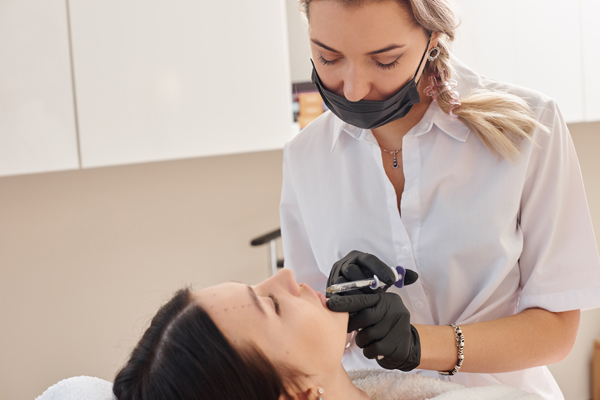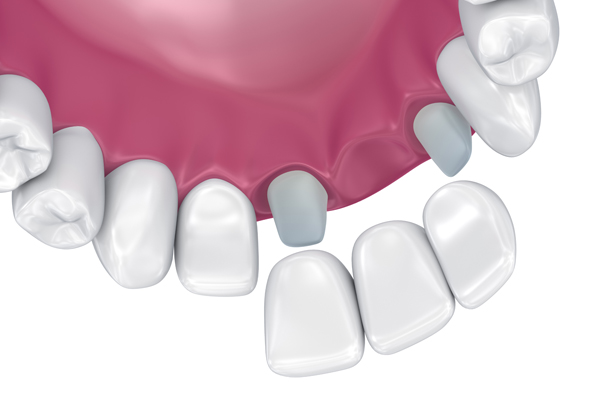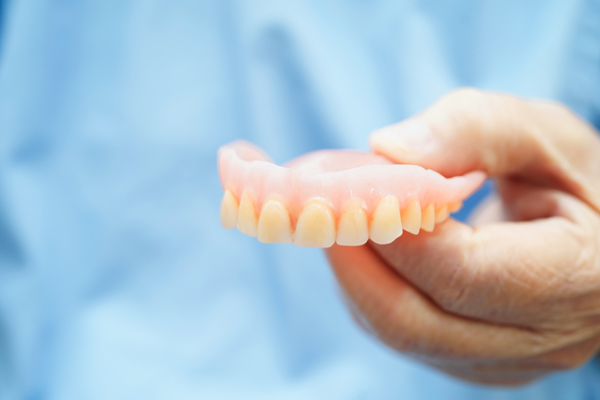Dental Botox For TMJ

Considering Botox® for TMJ reasons? General dentists who have undergone the necessary training can administer Botox® to their TMJ patients. This treatment option can provide relief for up to three months.
About dental Botox®
Learning about Botox® for TMJ treatment is the first step for dental patients diagnosed with TMJ disorder. TMJ stands for temporomandibular joint disorder, meaning those diagnosed with this condition often experience some discomfort or pain. Although many people believe Botox® is only used for cosmetic purposes, it can also serve therapeutic purposes. Dental Botox injections allow TMJ sufferers to experience relief, which is why dental Botox® is so popular in dental offices.
According to the Journal of Clinical and Diagnostic Research, Botox® has important clinical uses as an adjunct therapy in temporomandibular joint and bruxism cases and for patients with chronic TMJ and facial pain. In addition, it is a safe, minimally invasive treatment option that offers TMJ patients the ability to manage this muscle-generated dental disease, which is why so many TMJ patients choose to undergo dental Botox® treatments.
Treating TMJ with Botox injections
Botox® helps TMJ sufferers because it helps relax the muscles in and around the jaw area. This muscle relaxation helps minimize or even eliminate any discomfort or pain someone is experiencing due to their diagnosis with TMJ. When the practitioner injects dental Botox® into a patient, they can expect to start to experience relief somewhere between one and ten days. In addition, Botox® injections tend to last up to three months, meaning TMJ patients can choose to undergo additional Botox® injections if they are still in need of TMJ treatment.
When it comes to where the Botox® injections will take place, the dentist will decide the ideal sites for injections. They often administer the injections after understanding where the patient is experiencing the most intense pain and discomfort. The dentist will numb the dental Botox® patients before they receive their Botox® treatment. When Dental Botox® are numbed, they experience little to no discomfort from the Botox® treatment. In dental offices, Botox® treatments usually last between 10 and 30 minutes and are administered by dentists.
Patients will receive TMJ Botox® therapy as part of their overall dental treatment plan. The dental professional will share this plan with the patient, so they know what to expect. Some patients may need to undergo only a few Botox® treatments, while others may need to undergo more. It simply depends on each individual patient's particular situation. Some TMJ patients experience more discomfort, pain, and overall dental problems than other patients who have been diagnosed with this jaw-related disorder.
Living with TMJ?
Interested in trying Botox® for TMJ reasons? This treatment option is effective and proven to work. TMJ sufferers can expect to find the relief they need, so they no longer have to suffer from TMJ-related problems and live their life without excessive pain and discomfort. Reach out today to learn more.
Request an appointment here: https://www.yourperfectsmiledentistry.com or call Your Perfect Smile Cosmetic & Family Dentistry at (281) 305-9549 for an appointment in our Kemah office.
Check out what others are saying about our dental services on Yelp: Botox® for TMJ in Kemah, TX.
Related Posts
Botox® is a household term by now, known as one of the most common ways of treating facial wrinkles. Fewer people are aware, however, that Botox® is used in cosmetic — or “esthetic” — dentistry treatments.This article will examine how Botox® is used as an esthetic dentistry treatment, first defining esthetic dentistry before diving into…
If you find yourself hiding your smile due to imperfections on your teeth, a meeting with the general dentist for cosmetic dentist treatments can transform your smile. Whether you wish your teeth were straighter and whiter with no flaws, there are different dental procedures available to transform your smile. This article covers a few of…
A dental bridge is often an important tooth-replacement option when one or more teeth are missing in the same area. Gaps in the smile affect chewing, speech, and overall oral health. Over time, missing teeth can also affect jaw alignment and place extra stress on the remaining teeth. Understanding how a bridge works helps patients…
Denture repair is a common need for patients who wear partial or full dentures. While these oral appliances are strong, they are prone to breaking because of their delicacy. When a break occurs, it can be hard to know whether a denture repair can take place or if a complete replacement is necessary. Thankfully, patients…


